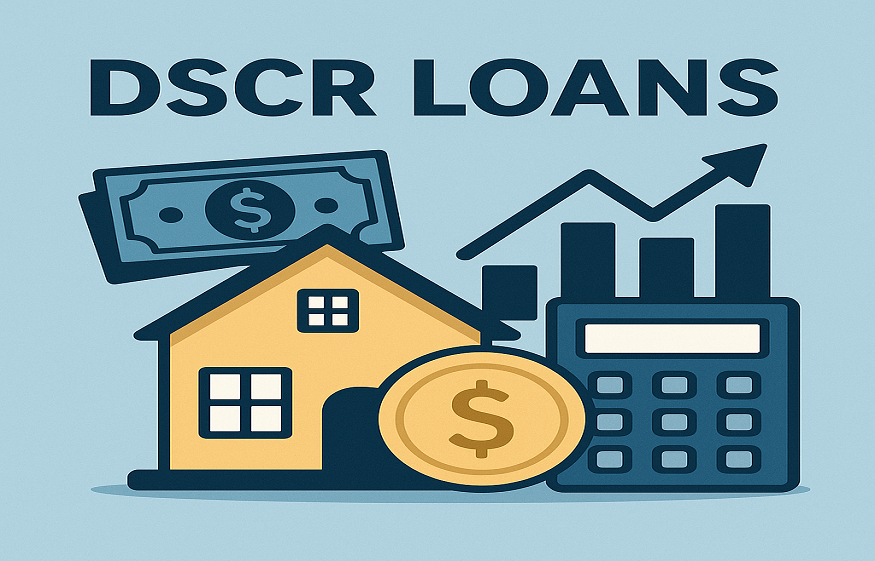For real estate investors, securing funding can be complicated, especially when traditional lenders focus heavily on personal income and credit history. DSCR loans, or Debt Service Coverage Ratio loans, provide an alternative that focuses on the property’s income rather than the borrower’s finances. This makes it easier for investors to qualify for loans, expand their portfolios, and manage multiple properties efficiently.
What Is a DSCR Loan?
A DSCR loan evaluates a property’s ability to generate income sufficient to cover its debt. The key metric is the Debt Service Coverage Ratio (DSCR), which measures the ratio of net operating income (NOI) to annual debt payments.
Formula:
DSCR=NetOperatingIncomeAnnualDebtServiceDSCR = \frac{Net Operating Income}{Annual Debt Service}DSCR=AnnualDebtServiceNetOperatingIncome
For example, if a rental property earns $120,000 annually in NOI and the mortgage requires $96,000 in yearly payments, the DSCR is 1.25. A ratio above 1.0 indicates the property generates enough cash flow to cover debt, which is the main criterion for approval under most DSCR loan programs.
Why Investors Prefer DSCR Loans
DSCR loans differ from conventional mortgages in one significant way: they prioritize property performance over personal income. This is especially useful for:
- Self-employed borrowers with irregular income.
- Investors with multiple rental properties seeking portfolio growth.
- Short-term rental operators using Airbnb, Vrbo, or other platforms.
- Entrepreneurs who want to separate personal finances from investments.
By focusing on property cash flow rather than W-2s or tax returns, DSCR loans streamline approval and make financing more accessible.
Key Advantages of DSCR Loans
- No Income Verification Required
Borrowers do not need to provide personal tax returns or pay stubs.
- Faster Approval Process
Lenders review the property’s rental income, leading to quicker underwriting.
- Portfolio Scalability
Investors can acquire multiple properties without being limited by personal debt-to-income ratios.
- Entity Ownership Allowed
Financing is often available for LLCs or corporations, providing asset protection.
- Support for Various Property Types
DSCR loans can be used for single-family homes, multi-family units, and short-term rentals.
Typical DSCR Loan Requirements
While flexible, most lenders have certain expectations:
- Minimum DSCR Ratio: Usually 1.20 or higher, though some programs allow as low as 1.0.
- Down Payment: Commonly 20–25%.
- Credit Score: Many lenders require a minimum of 660.
- Property Condition: Must be income-producing and rentable.
- Loan-to-Value (LTV): Typically 75–80% maximum.
How DSCR Loans Work: An Example
Suppose an investor purchases a triplex generating $9,000 per month in rental income. After $3,000 in monthly operating expenses, the annual NOI is $72,000. If annual debt payments are $60,000, the DSCR is:
DSCR=72,00060,000=1.20DSCR = \frac{72,000}{60,000} = 1.20DSCR=60,00072,000=1.20
With a DSCR of 1.20, the property qualifies under most DSCR loan programs, showing that it produces sufficient income to cover its debt obligations.
DSCR Loans vs. Conventional Mortgages
| Feature | Traditional Mortgage | DSCR Loan |
| Approval Basis | Borrower’s income & DTI | Property rental income |
| Documentation Required | W-2s, tax returns, pay stubs | Lease agreements, NOI |
| Speed of Approval | Slower | Faster, simplified |
| Ownership Options | Personal name only | LLCs and business entities |
| Best For | Primary homebuyers | Investors |
Risks and Considerations
Although DSCR loans are flexible, investors should consider:
- Interest Rates: May be slightly higher than conventional mortgages.
- Vacancy or Income Risk: If rental income falls, the DSCR may drop below required levels.
- Minimum DSCR Requirements: Properties with ratios below lender thresholds may not qualify.
Careful planning and reserves for vacancies can mitigate these risks.
Who Should Consider DSCR Loans?
- Investors expanding rental portfolios quickly.
- Self-employed individuals without steady W-2 income.
- Short-term rental operators relying on platforms like Airbnb or Vrbo.
- Entrepreneurs who want to separate personal and investment finances.
DSCR loans provide a reliable way to finance property investments, particularly when personal income documentation is challenging or restrictive.
Conclusion
Debt Service Coverage Ratio loans empower real estate investors by focusing on property performance rather than personal finances. DSCR loans allow investors to scale portfolios, fund multiple properties, and make informed decisions based on rental income and cash flow.

